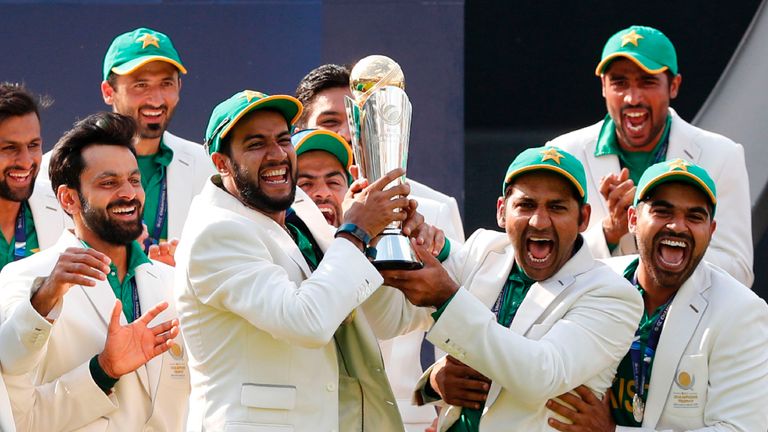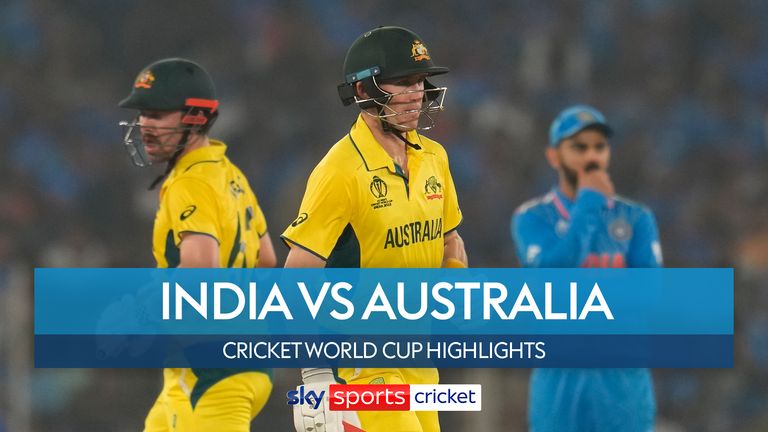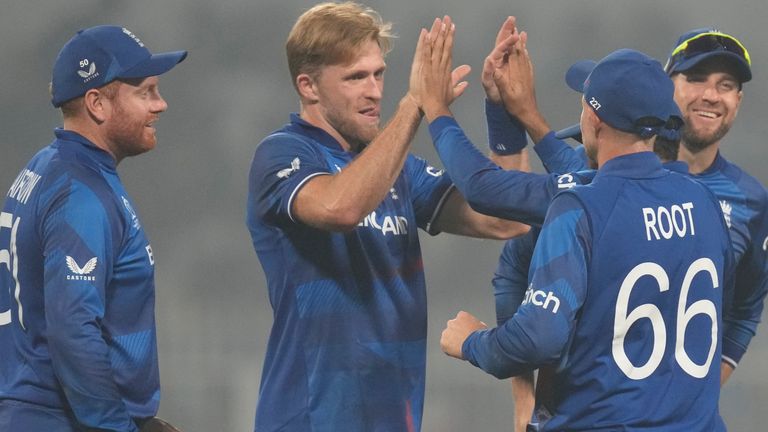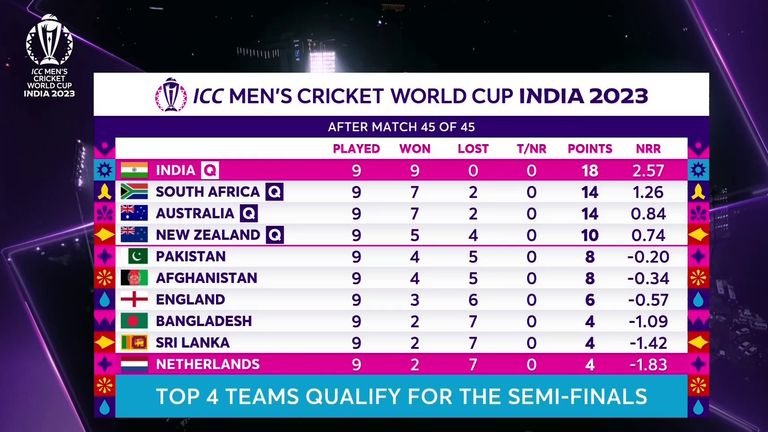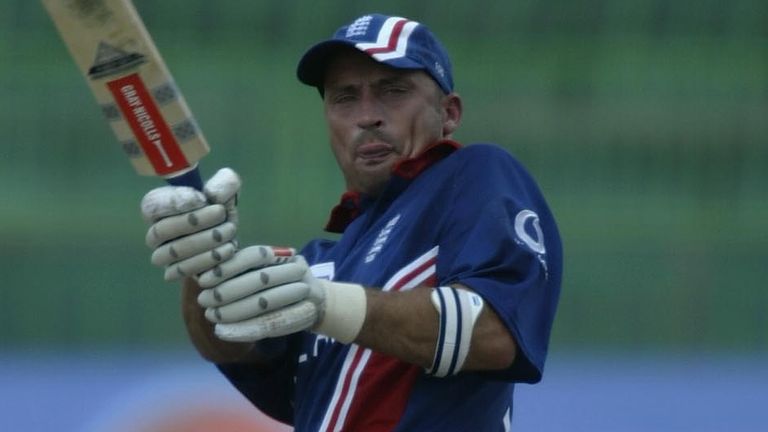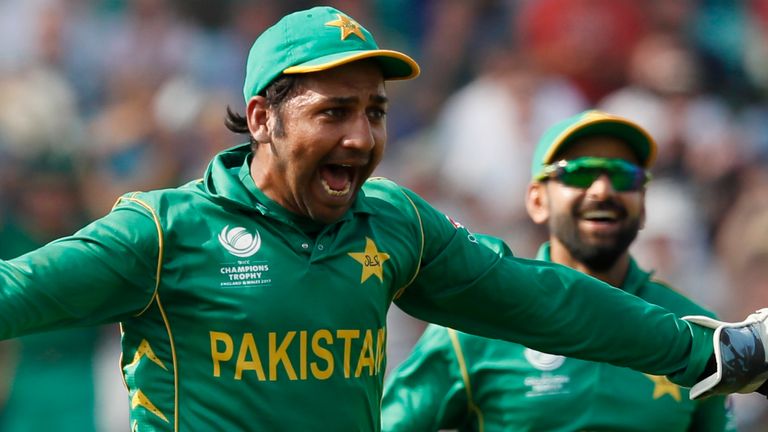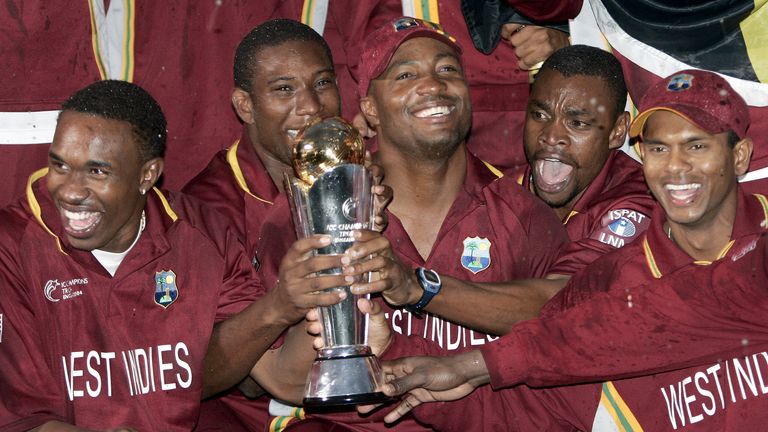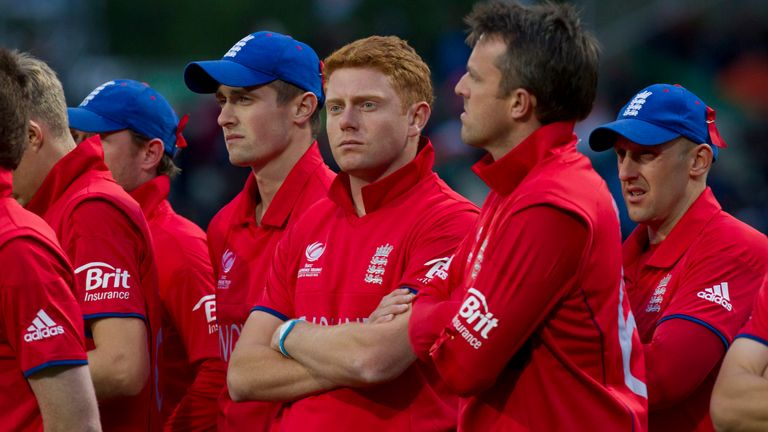What is the ICC Champions Trophy? All you need to know ahead of the next global 50-over event in 2025
England won their final two Cricket World Cup matches to scramble into the 2025 Champions Trophy in Pakistan - so what is the event, how does it work and how long has it been going? All you need to know ahead of next global 50-over competition
Monday 20 November 2023 13:47, UK
The ICC Champions Trophy was mentioned a lot during the recently concluded Cricket World Cup with the qualification process for the 2025 tournament revealed
It emerged that the final seven places in the eight-team event - Pakistan getting the first as hosts - would be determined not by world rankings but by finishing positions at the 2023 World Cup.
England were in danger of missing out as six defeats across their first seven games left them rooted to the foot of the table, only to then beat Netherlands and Pakistan to secure their spot.
- Pat Cummins helps Australia to 'one of great World Cup wins'
- Who makes Sky Sports' Team of the Cricket World Cup?
- Australia crash India's World Cup party - where did it go wrong?
Jos Buttler's side can now look forward to competing in the ninth staging of the ICC Champions Trophy and trying to win it for a first time after two previous losses in the final.
What is the ICC Champions Trophy?
A mini-50-over World Cup, basically.
While the Word Cup is arguably bloated - the 2023 edition took over six weeks to complete - the Champions Trophy is short and sharp, done and dusted in around two weeks.
The 2025 tournament is set to mirror the format used in 2017 with eight sides split into two groups of four. Each team plays the others in their pool once with the top two advancing to the semi-finals.
Pakistan are the defending champions having beaten great rivals India in the final at The Kia Oval six years ago, while India and Australia have won the most titles with two each.
Who will play in the 2025 Champions Trophy?
England and hosts Pakistan will be joined by India, South Africa, Australia, New Zealand, Afghanistan and Bangladesh.
Sri Lanka and Netherlands are the two sides who played at the World Cup that will not feature in the Champions Trophy after finishing ninth and 10th in the table respectively.
How long has the Champions Trophy been going?
It was first played in 1998 in Bangladesh - under the name the ICC KnockOut Trophy - with the nine Test nations at the time competing in a straight knockout competition.
New Zealand beat Zimbabwe in the preliminary match to reach the quarter-finals although the Black Caps went no further as they were then dumped out by Sri Lanka in the last eight.
The tournament was notable for South Africa actually winning a global ICC event, with the Proteas beating England in the quarter-finals, Sri Lanka in the semis and then West Indies in the final.
The straight knockout format was retained in 2000 - New Zealand pipping India in the final to win their maiden ICC global event - although the number of teams involved rose to 11 as the leading Associate nations at the time, Bangladesh and Kenya, were included.
The top five nations based on the 1999 Cricket World Cup seedings qualified directly for the quarter-finals - Australia, Pakistan, South Africa, New Zealand, Zimbabwe - with England, India, West Indies and Sri Lanka playing the preliminaries alongside Bangladesh and Kenya.
England made it past Bangladesh - that Nasser Hussain lad scoring 95 in an eight-wicket win - but were then trounced by South Africa, with Hussain making only five as his side were rolled for 182.
When did the pool stage come in?
That would be from the 2002 version in Sri Lanka onwards.
The number of teams may have fluctuated since then - 12 in 2002 and 2004, 10 in 2006 and eight in 2009, 2013 and 2017 - but group stages have been involved in all of them.
Any other changes?
Following the 2009 edition in South Africa (the tournament was due to be in Pakistan in 2008 but moved for security reasons) the competition switched from a two-year cycle to being played every four years, with the next version hosted by England and Wales in 2013.
The 2013 edition was due to be the last but that decision was reversed in 2014 and England and Wales staged the 2017 tournament as well.
Then it was scrapped again. Then it was revived again. Now it looks here to stay. The ICC confirmed its second comeback in November 2021, revealing Pakistan would host in 2025 and India in 2029.
So, England have never won it?
Nope - although they really should have done.
In the 2004 final at The Kia Oval, Marcus Trescothick's 104 underpinned England's 217 all out against West Indies before Andrew Flintoff's three wickets, two each for Paul Collingwood and Steve Harmison and one from Trescothick reduced the Caribbean side to 147-8 in the run chase.
West Indies were 71 runs from victory with only two wickets in hand but Courtney Browne (35no) and Ian Bradshaw (34no) took their team to victory with seven balls to spare.
England also lost another game they perhaps should have won when they were pipped by India in a rain-reduced 2013 final - MS Dhoni's side triumphing by five runs in a 20-over-a-side contest.
England needed 20 from 16 balls with six wickets in hand to top India's 129-7, only for Ishant Sharma to dismiss Eoin Morgan and Ravi Bopara from successive balls in the 18th over and Ravindra Jadeja to then remove Buttler and Tim Bresnan in a four-run 19th.
With 15 needed from Ravichandran Ashwin's final over, Stuart Broad gave England hope with an early four but he and James Tredwell were unable to get the runs required.
Oh well, they now have the chance to break their Champions Trophy duck in Pakistan in 2025.
